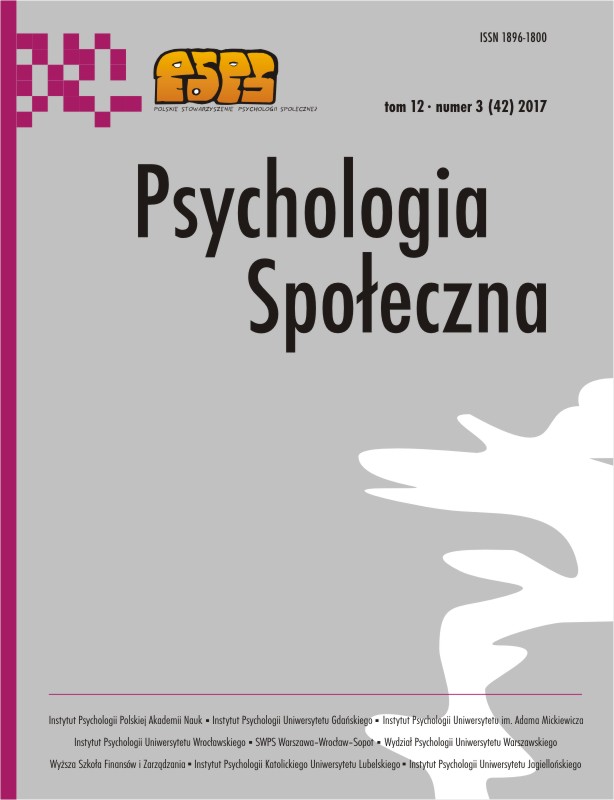Warunkowanie ewaluatywne: czy można mieć niespójne postawy? Próba częściowej replikacji badań Rydella i współpracowników
Evaluative conditioning: Can we have inconsistent attitudes? An attempt of partial replication of Rydell et al.
Author(s): Adriana Rosocha, Robert BalasSubject(s): Social Sciences, Psychology, Social psychology and group interaction
Published by: Wydawnictwo Naukowe Scholar Sp. z o.o.
Keywords: evaluative conditioning; explicit and implicit attitudes
Summary/Abstract: This research concerns the shaping of preferences and attitudes through evaluative conditioning. Evaluative conditioning (WE) is the result of change of initially neutral stimulus due to its repeated pairings with valenced stimulus. There was conducted an experiment based on partial replication of Rydell et al. (2006) research, the aim of which was to check if it is possible to have incoherent attitude towards the same object. The examined group consisted of 120 students (N = 120) from university-level institutions in Warsaw. On the conditioning stage, the respondents were presented picture of a person accompanied with a positive/ negative information on his/her behaviour. The presentation was preceded by the short exposition of an affective word, the value of which stayed in opposition to affective value of information. Both, explicit and implicit attitudes were subject to measurement. As expected, the final outcome confirms the possibility of creating incoherent attitude towards the same object. There were reported some crucial differences between explicit and implicit attitude when the preceding stimulus was positive and verbal information was negative. The result is the proof that the explicit attitudes depend on consciousness, whereas implicit attitudes are not only the reflection of automatic processes, but they can also be a result of various processes and information available to one’s consciousness. The outcome confirms the possibility of having incoherent attitude towards an object and describes the conditions of this inconsistency
Journal: Psychologia Społeczna
- Issue Year: XII/2017
- Issue No: 42
- Page Range: 256-267
- Page Count: 12
- Language: Polish

